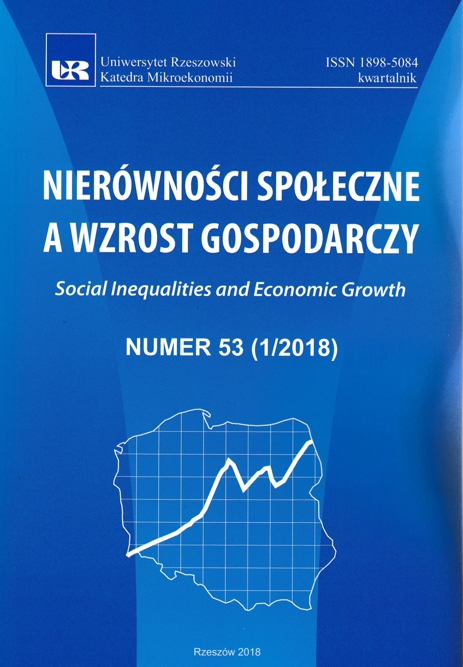Development prospects of selected information society technologies until 2025
DOI:
https://doi.org/10.15584/nsawg.2018.1.4Keywords:
Information Society, Technological Foresight, Online Delphi, Scenarios, Group Decision SupportAbstract
This paper presents selected results and the methodology of the foresight project SCETIST (2010–2013) devoted to the future prospects of selected information society technologies (IST) as well as to the related social and economic trends. The project has been conducted by the consortium of three partners: the Progress & Business Foundation (project leader), Jagiellonian University, Kraków, and the Institute of Theoretical and Applied Computer Science of the Polish Academy of Sciences, Gliwice. The real-life implementation of the project results is outlined as well. Technological trends and scenarios have been elicited using a novel online expert Delphi. Another web-based application supported group information society model building and applying it to IST trend simulation. The resulting model was a hybrid discrete-time/discrete-event control system. The scenarios construction was based on an original approach of elementary scenarios filtering by anticipatory networks to yield a small set of principal scenarios for each technology and social process concerned. In this paper we present trends and scenarios of end-user information technologies, such as decision support and recommendation systems, cloud-based ERP systems, m-health, e-learning, and other. The development scenarios and expected social impact of advanced neurocognitive and vision systems as well as of their deployment in artificial autonomous systems are briefly outlined. The final section presents conclusions and recommendations to the policy makers and enterprises. More information about the outcomes of the project can be found at the website www.ict.foresight.pl.Downloads
Download data is not yet available.
Downloads
Published
2020-11-13
How to Cite
Skulimowski, A. M. (2020). Development prospects of selected information society technologies until 2025. Social Inequalities and Economic Growth, 1(53), 61–75. https://doi.org/10.15584/nsawg.2018.1.4
Issue
Section
Articles
License
Copyright (c) 2018 University of Rzeszow

This work is licensed under a Creative Commons Attribution-ShareAlike 4.0 International License.


